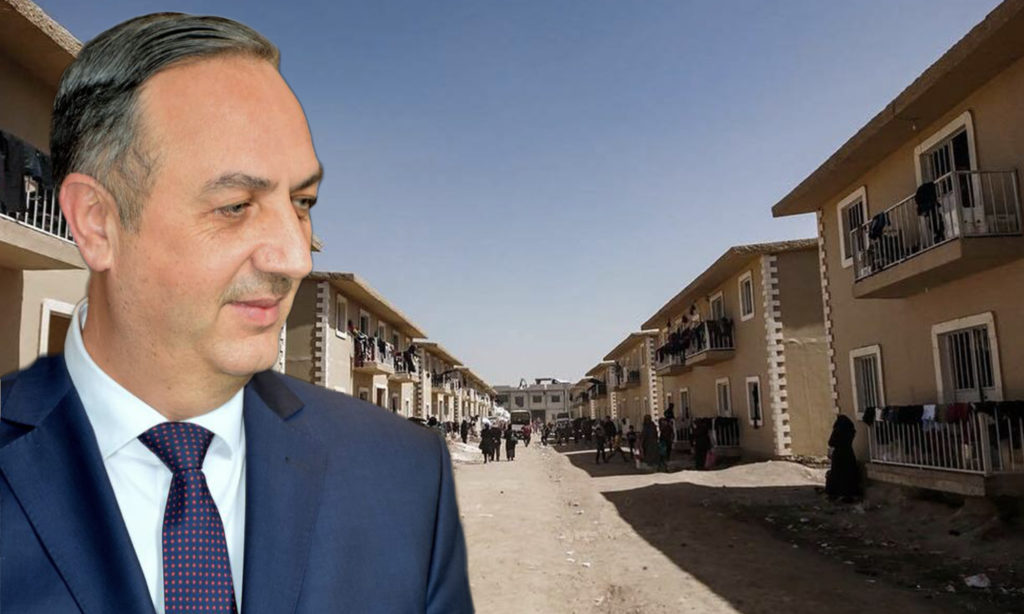The governor of Rif Dimashq governorate, Alaa Ibrahim, has said against the backdrop of the “International Conference on the Return of Refugees,” that Syrian refugees could be welcomed back in housing centers if sanctions on Syria were lifted.
Ibrahim commented on the conference, saying that he hopes it would collect financial support to contribute to restoring the infrastructures of “the regions destroyed by terrorism”, according to his statement to Syrian Days online news website on 11 November.
Ibrahim pointed out that the returning refugees will not go back to their areas directly, as the governorate has several housing centers, such as the temporary housing units in al-Harjalah and Adra.
Previously, the regime’s government used these housing centers as camps for those who left the “settlement” areas in Damascus and its countryside.
The governor said that these housing centers would receive a number of returning families until the governorate completely finishes the infrastructure rehabilitation in their regions.
Ibrahim confirmed that “under the sanctions on Syria, the Rif Dimashq governorate worked on facilitating the residents’ return through the rehabilitation of destroyed areas.”
He confirmed that the return of the refugees requires “substantial capital.”
Ibrahim pointed out that the governorate is placing all its capabilities for the return of Syrian citizens and displaced persons.”
He added, “lots of Syrians have returned to their areas, such as al-Kisweh, Beit Jinn, and other regions.
According to Ibrahim, the governorate contributed to the residents’ return because it “restored services to most areas in the countryside of Damascus.” He added, “some areas need regulatory plans because they were destroyed, which, he described as slum areas.”
The conference, sponsored and organized by Russia, started on 11 November in the Syrian capital, Damascus, amid the absence of countries hosting the largest numbers of Syrian refugees.
China, Lebanon, the United Arab Emirates (UAE), Oman, Russia, and Iran participated in the conference, which was held at the conference palace in Damascus.
In addition, the conference was attended by countries that have no influence on the Syrian file and have nothing to do with the refugee issue, including Nigeria, Cuba, Kyrgyzstan, Argentina, Sri Lanka, Abkhazia, Colombia, and Algeria.
The High Representative of the European Union (EU) for Foreign Affairs and Security Policy, Josep Borrell, declared on 10 November that EU countries would not participate in the “premature” conference.
Borrell said that “the current conditions in Syria do not encourage the promotion of a voluntary return in conditions of security and dignity that are in accordance with international law.”
With this rejection, the EU has joined the United States, Canada, and other countries hosting Syrian refugees.
Human Rights activist and Syrian researcher at Human Rights Watch’s the Middle East and North Africa Division, Sarah al-Kayyali, said previously to Enab Baladi that “the main reasons that forced Syrians to leave in the first place still exist, such as arbitrary arrests, torture in prisons and the tragic human and economic situation, especially in the Syrian regime-held regions.”
The Russian Defense Ministry called for a “conference for Syrian refugees” held under Russian auspices for the first time on 5 September 2018. Back then, Russia described the conference as a “historic event” and stressed the need for the participation of the countries concerned and the United Nations (UN) in it.
The conference is scheduled to include several sessions distributed on 11 and 12 November, despite the absence of the countries directly concerned with the Syrian refugees’ file.











